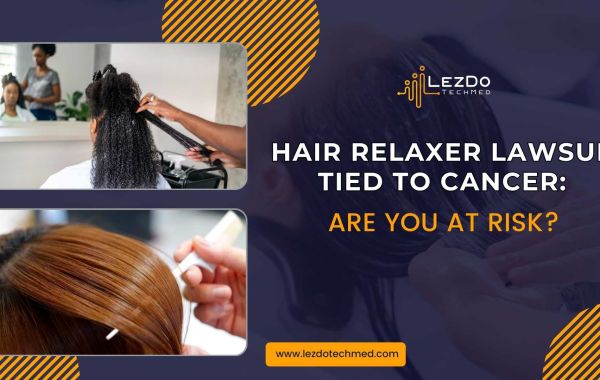https://www.lezdotechmed.com/blog/hair-relaxer-lawsuit/
What is a Hair Relaxer?
Hair relaxers, chemical products that straighten curly or coily hair, have come under scrutiny due to their potential health risks. Hair relaxers work by employing alkaline solutions that disrupt disulfide bonds in hair, thereby relaxing curls. There are various types of hair relaxers: Lye relaxers, No-lye relaxers, and Thio relaxers, each with its own set of active agents and potential risks.
Link between Hair Relaxer and Cancer
Numerous studies have suggested that prolonged use of hair relaxers can lead to a variety of cancers including uterine, ovarian, and breast cancer. Complaints such as hair thinning, breakage, and scalp burns are also frequent.
Lawsuits against manufacturers of hair relaxers have been on the rise, especially following key studies published by reputable institutions like the National Institute of Environmental Health Sciences (NIEHS) and Oxford University. These studies indicate a significant correlation between the use of hair relaxers and the risk of developing various forms of cancer.
Hair Relaxer Lawsuit
The first lawsuit linking hair relaxers to uterine cancer was filed in October 2022, and this led to an increase in similar lawsuits, eventually culminating in multidistrict litigation (MDL). A class-action lawsuit has also been initiated against various manufacturers including big names like L’Oréal and Revlon. The MDL aims to consolidate individual complaints into a single action to expedite proceedings and settlements.
Damages Covered in the Hair Relaxer Lawsuit
People who have developed uterine cancer due to the use of chemical hair relaxers face significant financial burdens, including the costs of chemotherapy, radiation, and surgery. Recovery from a hysterectomy, often required for those diagnosed with uterine cancer, takes a minimum of six to eight weeks, causing lost wages and further financial strain.
Eligibility criteria for filing a lawsuit against the manufacturers include regular use of a chemical hair relaxer and a diagnosis of uterine, ovarian, or breast cancer. Medical record reviews play an essential role in substantiating these claims. The hair relaxer lawsuit settlement amounts vary depending on the severity of damages suffered.
Conclusion
The pursuit of beauty through the use of chemical hair relaxers has exposed many women to severe health risks, leading to an uptick in legal cases against the manufacturers of these products. The article stresses the importance of prioritizing well-being over aesthetics, especially given the well-documented risks associated with these products.








